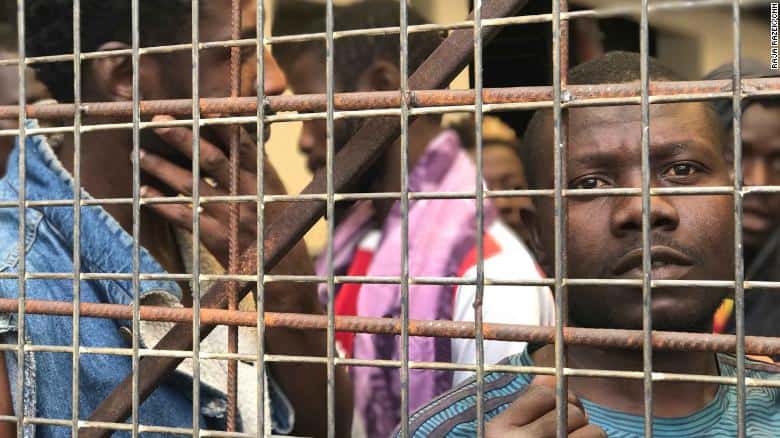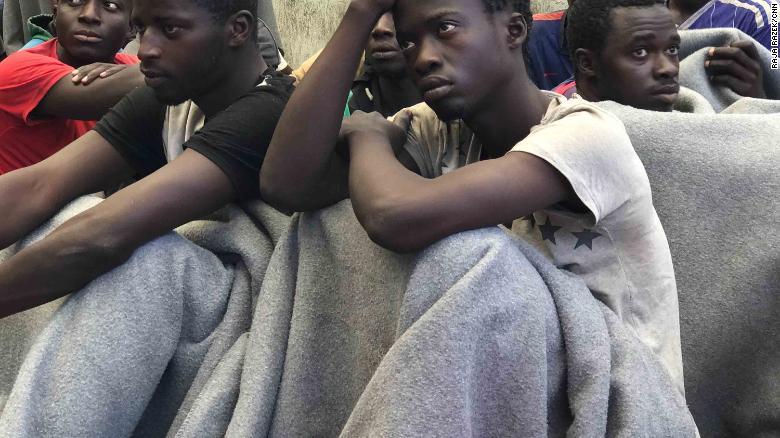In recent weeks, Libya has been the focus of attention within the global community for the recent exposure of the mass slave trade of predominantly black African men. News outlets and social media have revealed how these men were being sold for roughly $400 and various pictures have depicted the extent of their maltreatment. All this comes after a CNN investigative journalist team released footage of material from this past month, which then sparked all the attention and consequently the Libyan government’s denunciation of the slave trade.
For many people across the world, this may have come as a shock because it was not at the forefront of the societies affected, yet it does not mean the communities did not know. As unacceptable as it is, slavery is not new to the region around and by extension the African continent. What is new is the revelation of the extreme human rights abuse. By this, I mean the practice of enslaving Africans is a system that exists that several communities know of, yet the experiences are never exposed at this level. As the Director of the organisation Ivorians Living Abroad, Issiaka Konate, and former slave Diaby Baba said, “The recent discovery by CNN is in fact an open secret that people have known about”; an open secret that has led to an organisation such as Ivorians Living Abroad stating that they found 595 Ivorians within the Libyan slave network.
This slave trade in Libya can be seen as example of how societies ignore the need to address negative qualities, perhaps under the assumption that ‘out of sight is out of mind’, which then equates to out of existence. Instead the atrocity underscores the importance of addressing such situations and circumstances, particularly within the various societies across the continent.
It is critical not to discredit the importance of drawing the global community’s attention to the slave trade. In fact, the detailed display of this mass ‘underground’ network has raised awareness. As with all issues, awareness is a crucial first step to opening a doorway to many possibilities in regards to actions and resolutions. Now that this has been achieved, creating discussion platforms may be beneficial. These platforms need to engage the tensions that have been present even prior to this news. The tension of how nations north of the Sahara, such as Libya. interact and perceive themselves in relation to nations south of the Sahara, such as Côte d’Ivoire and vice versa. When it comes to economic relations between States, it is visible that there is an existing relationship. An example is the involvement of Moroccan corporations supporting Ivorians in developing their infrastructure.
In understanding how the relationship between such countries is complicated, especially once hierarchies are also included, we allow for these discussions to be as cognizant as possible in approaching how to attain reconciliation and a Pan African approach. Discussion, as valuable as that is, does not constitute a conclusion to such a matter. This issue by default of being on the African continent and involving African countries, is therefore an African issue. As a result there should be an expectation for strong African contribution towards action in resolving and reconciling the slave trade. By this I mean, the responsibility should not only lie with the International Organisation for Migration (OIM) along with other international bodies. Arguably organisations such as Ivorians Living Abroad have stepped up to be a part of this work. As States, Libya has denounced the actions that have occurred through the slave trade and Rwanda is exemplar in providing itself as a possible refuge to 30,000 migrants who suffered in the slave conditions.
There are also other agents taking action which have not been recognised, yet there are many more who have the possibility to also contribute even in the minutest of forms. As individuals and particularly for those who have a form of investment on the continent, it may be our responsibility to ask the questions that hold organisations, societies, governments and leaders accountable. Therefore, it cannot be said that as an individual there is no role in assuring the resolution of this issue or the next. Because this slave trade is just another example on the list of issues that have been allowed to grow to an incomprehensible capacity because it was not addressed. Out of sight, out of mind, out of existence is not a working solution and it would be rare that ever will be.
Arnold Sanginga is Director of Programs at Future Africa.





